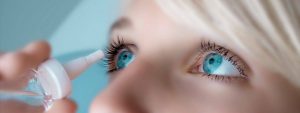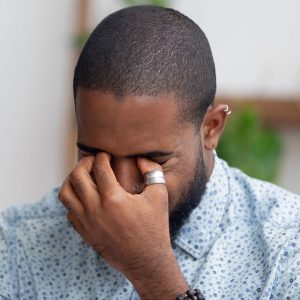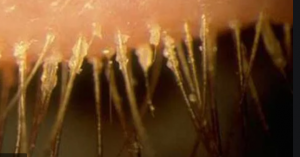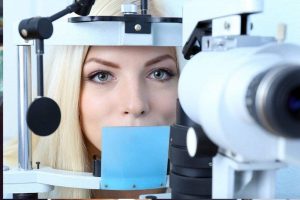Over 50 million Americans experience chronic dry eye symptoms, but relief is closer than many realize.
The shift in medicine today toward an overall more holistic approach to treatment and healing may hold the key to reversing the growing trend of dry eye syndrome.
Many eye doctors now provide a holistic approach to treating dry eyes.
Here are our top 8 frequently asked questions about dry eye syndrome and holistic treatments.
Q1. What is dry eye syndrome?
As the name implies, dry eye syndrome is an eye condition characterized by chronically dry eyes.
Dry eyes most commonly occur when the tears are missing a key component, leading them to dry out too quickly or not spread out properly over the surface of the eye. Sometimes there is simply not enough of the water layer produced to keep the eye comfortably hydrated.
Any of these factors can lead to a number of uncomfortable symptoms, including:
- Dry, itchy eyes
- Eye redness
- Light sensitivity
- Blurry vision
- Persistent feeling of something being in your eye
- Grainy or gritty feeling over the entire surface of your eye
Interestingly, dry eye syndrome can also cause excessive watering of the eyes, as the eye tries to wash out the cause of the irritation.
Q2. What causes dry eye symptoms?
Dry eye symptoms can be caused by both environmental and biological factors.
Environmental factors may include:
- Wind, indoor heating, or air conditioning.
- Smoke from fireplaces, bonfires, people smoking nearby, etc.
- The presence of allergens, such as pollen or dust, in the air
- Low humidity outside, at home, or at work
Biological factors may include:
- Hormonal changes, such as menopause or medications used in birth control
- Dehydration and diets low in Vitamin A and omega-3 fatty acids
- Reduced blink rate caused by extensive time spent on electronics such as computers, tablets, and smartphones
- Autoimmune diseases, including Sjogren’s syndrome
- Inflammation caused by conditions such as blepharitis
Q3. Can dry eye syndrome be treated?
Yes.
Today, there is a vast range of treatment options allowing eye doctors to find the root cause of the dry eyes and prescribe the optimum treatments.
By detecting the cause of dry eyes, eye doctors have many ways to help manage symptoms, both in-office and at home.
Tell your eye doctor if you’re experiencing dry eye symptoms so that they can diagnose the underlying cause and start treatment.
SEE RELATED: Why is Dry Eye Worse in the Mornings?
If dry eyes are impacting you in any way, schedule an appointment with an eye doctor, relief may be closer than you think.
Q4. How can I prevent dry eyes?
There are a number of proactive steps you can take to prevent dry eye symptoms.
1. Water. Drink plenty of water, at least 8 to 10 cups every day
2. Vitamin A. Vitamin A is found in foods such as eggs, carrots, fish, spinach, broccoli, and peppers.
3. Omega 3. Foods rich in omega-3 fatty acids are also important. These include salmon, tuna, flaxseed, and walnuts. Omega-3 supplements also combat dry eye symptoms.
4. Wind exposure. Reduce wind exposure by wearing sunglasses or other eye protection while outdoors. Make sure air vents at home, in the car, and at the office are pointed away from your eyes.
5. Digital breaks. Take breaks from your electronics, because people blink less while their eyes are focused on a computer, smartphone, tablet or TV screen.
6. Air quality. Use a humidifier to increase the amount of moisture in the air around you. Avoid dry or highly polluted air environments.
Q5. What can I do at home for my dry eyes?
Besides the above-mentioned tips to prevent dry eye symptoms, there are a number of at-home remedies you can try.
Among these treatments are:
1. Follow your eye doctor’s advice. The eye doctor may have prescribed specific eye drops or artificial tears. Their recommendation was based on the underlying issues causing your dry eyes, staying with the prescribed eye drops is essential, even though it may take a few weeks to realise the improvements.
2. Warm compress. Wiping the eyes with a warm damp cloth or cotton wool, to clean the eyelids and reduce inflammation.
3. Eyelid cleaning. Using a clean finger to gently massage the eyelids in a circular motion to clean out clogged oil from the small glands in your eyelids.
4. Baby shampoo. You can also scrub your eyelid margins with tear-free baby shampoo or soap to really help clean out any blocked oil glands away effectively.
Q6. Are there alternative solutions for dry eyes?
Although more research needs to be done, studies seem to indicate promising results for a number of alternative medicine solutions for the treatment of dry eye symptoms.
1. Acupuncture
A study published by National Institutes of Health, Plos One, May 2012 on the effects of acupuncture on dry eye symptoms seemed to compare it favorably against artificial tears.
One theory as to why it works so well is that acupuncture reduces stress and inflammation in the entire body, including the eyes.
2. Intense Pulsed Light
Research published in Photomed Laser Surg, Jan 2015 showed that intense pulsed light therapy, which is usually used to treat rosacea and acne symptoms, was effective in reducing dry eye symptoms. In the study, 93% of participants said they felt the therapy was helpful.
Q7. When to see a doctor about my dry eyes?
In some cases, you may experience dry eyes only temporarily, such as when flying on an airplane or experiencing particularly cold or windy weather. In these cases, dry eye discomfort may not indicate a chronic issue that requires long-term treatment.
However, if you find yourself grappling with dry eyes symptoms on a regular basis, you should go see your local eye doctor to figure out what is causing the problem, and how to best treat it.
In the end, whether your issue is temporary or chronic, your eye doctor is always an excellent resource for preventing and treating discomfort linked to dry eyes.
Q8. Are there in-office holistic dry eye treatments?
Holistic approaches to the treatment of dry eye attempt to address the root causes of the condition, rather than the symptoms.
Your eye doctor may offer, these holistic in-office options:
Homeopathic tear stimulation drops
These eye drops are thought to be superior to artificial tears because of their longer-lasting effects.
These eye drops naturally encourage your eye to produce all three essential layers of healthy tears: mucus, oil, and water.
Allergy desensitization drops
Allergies are a very common reason people experience dry eye symptoms. Desensitization drops use natural ingredients to reduce the body’s reaction to all allergens, including pollen in the air.
This helps calm inflammation that results in red, itchy eyes and other dry eye symptoms.
In-office heating and massaging of eyelid glands
Many eye doctors have various devices that gently heat the eyelid and massage it, to clear out thickened oils that may be clogging the tiny glands in your eyelids, reducing tear quality and causing dry eye symptoms.
LEARN MORE: Guide to Dry Eye
Don’t let dry eyes impact your quality life, schedule an appointment with an eye doctor to discuss the range of holistic treatments.
The shift in medicine today toward a more holistic approach to treatment and healing may hold the key to reversing the growing trend of dry eye syndrome.
Many eye doctors can provide a holistic approach to treating dry eyes successfully.









